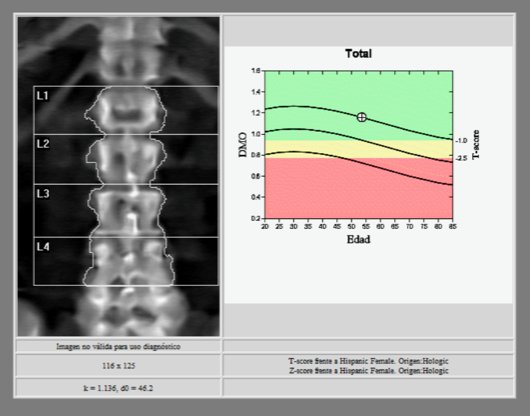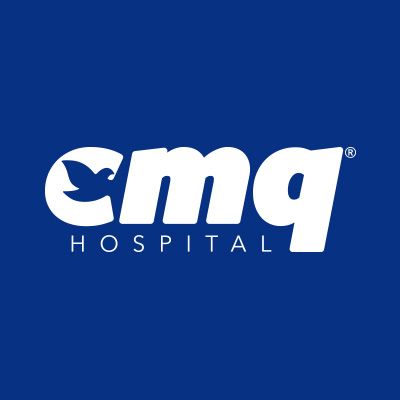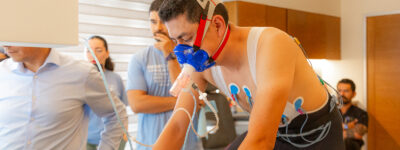DEXA Scan: Discover the Innovative Bone Density Test Available in Hospital CMQ
Healthier Bones in the Capable Hands of our Expert Radiologists in Puerto Vallarta and Riviera Nayarit
In our constant search to deliver the best medical care, our Hospital offers you the new DEXA Scan (dual-energy x-ray absorptiometry), which is an enhanced form of x-ray technology that is used to measure bone loss.). This advanced technique is now available at our CMQ Riviera Nayarit Hospital.
Healthy bones are fundamental for a fulfilling life. For this reason, to ensure that your bones are in the very best hands, we have the DEXA Scan, also known as bone density scanning or bone densitometry. With this cutting-edge technology, our Radiology Department, led by Dr. César Medina, assesses bone mineral density in a non-invasive way. Fortunately, This allows for early detection of conditions such as osteoporosis.
Our priority is your well-being, and a DEXA scan is a vital tool in preventive care. Read on and discover how this innovative technique can be key to maintaining the strength of your bones and ensuring an optimal quality of life. At Hospital CMQ, your bone health lies in the hands of experts committed to providing the highest level of excellence.
Beyond Imaging: The Importance of the DEXA Scan in Detecting Osteoporosis and Other Bone Diseases
DEXA Scan plays a fundamental role in the early detection of bone diseases, such as osteoporosis. The following reasons highlight the importance of this diagnostic test:
- Early detection of osteoporosis: Osteoporosis is a silent disease that weakens bones and increases the risk of fractures. DEXA Scan makes it possible to identify bone density loss before symptoms appear, facilitating preventive interventions and early treatment.
- Fracture risk assessment: Decreased bone mineral density is an important indicator of the risk of suffering a fracture. Likewise, this scan provides accurate information about bone health, allowing physicians to effectively assess and manage the possible risk of a fracture.
- Identifying bone disease: In addition to osteoporosis, DEXA can also help detect other bone conditions and some metabolic diseases that affect bone health.
Understanding DEXA Scan: A Closer Look at the Procedure
A DEXA scan is a relatively simple and non-invasive procedure that requires no special preparation. In fact, our specialists state that you can eat and drink as usual before the test. However, it is important to notify the technician if you are undergoing any medical treatment or if you are pregnant. In addition, relevant medical information is gathered prior to the test, such as your history of fractures and any risk factors you may present.
At the beginning of the test, you will generally lie on a padded table while a small arm-like device passes over your body. During the study, the DEXA machine emits a small amount of low-intensity radiation that travels through your bones. In this sense, it is worth noting that the radiation exposure is minimal and won’t affect you in any way. The procedure usually takes between 10 and 30 minutes, depending on the areas to be evaluated. Most importantly, you should remain as still as possible during the procedure to ensure a clear and useful image. At the end of the test, the results are analyzed and interpreted by our radiologists.
DEXA Scan Test Interpretation
Results from a bone density test are expressed as T-score and Z-score. The T-score compares the patient’s bone mineral density with that of a healthy young adult. A score above -1 is considered normal. Moreover, a score between -1 and -2.5 is classified as osteopenia, the first stage of bone loss. A score below -2.5 is defined as osteoporosis. It is used to estimate your risk of developing a fracture.
The Z-score, on the other hand, compares the bone mineral density with that of people of the same age and sex as the patient. However, since bone mineral density decreases with age, T-scores are usually lower than Z-scores after the age of 40 years. Therefore, it is common that this difference increases with age. Moreover, If this difference is unusually high or low, it may indicate a need for further medical tests.

T-scores are measured in standard deviations (SD), statistical measures that reflect the difference between your bone density and the average bone density for healthy young adults of your gender.
Did you know?
In addition to the usual spine and hip studies, there is a full-body DEXA bone densitometry study that provides important information such as body fat and lean body mass percentages.
Most Common Bone Density Studies
The most common bone density tests are Spine and Femur DEXA and Spine and Hip DEXA. These studies provide vital information about bone mineral density in specific areas of the body.
Spine And Femur DEXA Scan
The purpose of this test is to evaluate bone density in the spine and femur. In particular, these areas are especially prone to bone density loss, which increases the risk of fractures. Consequently, a spine and femur bone densitometry is key for the early detection of osteoporosis and as an assessment of fracture risk. During an examination of the spine, your legs will be supported on a padded box to flatten your pelvis and lower your spine.

Hip And Spine DEXA Scan
The Hip DEXA evaluates bone density in the spine and hip region. The hip is a critical area, as fractures in this area can have significant consequences. Fortunately, this diagnostic test provides information about bone density in the lumbar and hip region. For this reason, it helps in the early detection of the risk of hip fractures.

Did you know?
The software we use to conduct a DEXA Scan at Hospital CMQ can detect 10-year fracture risk probability? Book your DEXA Scan now!
Am I a Candidate: When to Consider a Bone Density Test as Part of a Health Check-up?
A DEXA Scan is sometimes considered as part of a routine medical check-up. In other particular cases, this study is needed for specific situations. Below, our experts clarify when it is necessary to schedule this study:
- Menopausal women and Men over 50: Bone density loss tends to increase with age. Therefore, menopausal women and men over the age of 50 are at an increased risk of developing osteoporosis. In this case, the scan may be recommended to assess the bone health of these individuals.
- Patients with a history of fractures: If you have had previous fractures, this study may be considered to assess your bone mineral density and the risk of future fractures.
- Family history of osteoporosis: If you have a family history of osteoporosis or low bone density, your doctor may recommend a DEXA study to evaluate your individual risk and take preventive measures.
- People with low body weight: People with low body weight or a history of eating disorders may have an increased risk of bone density loss. In these cases, a densitometry test can help assess bone health and guide necessary interventions.
Notably, it is important to discuss with your doctor your history of risk factors and any specific concerns you may have. Your doctor will be able to determine if this test is appropriate for you as part of your regular health check-up.
Your Health, Our Priority: Why Choose your DEXA Scan at CMQ Riviera Nayarit?
At Hospital CMQ Riviera Nayarit, we are proud to offer the DEXA scan, an essential bone health assessment test. Our facilities are equipped with the latest technology in bone densitometry, guaranteeing accurate results and early detection of bone disorders.
Here at Hospital CMQ, your well-being is our priority. We offer you a welcoming environment and personalized care to make you feel comfortable throughout the entire process. In addition, we understand the importance of obtaining results in a timely manner. Accordingly, our efficient processing and interpretation system gives you the information you need in the shortest time possible. Therefore, choosing our CMQ Riviera Nayarit Hospital for your bone density test not only means access to state-of-the-art technology, but it also means receiving personalized care, high-quality assistance, and reliable results. Your bone health is in good hands with us.
Elevating Healthcare Standards: Our DEXA Scan expert at Hospital CMQ
We have a team of expert radiologists led by Dr. César Medina, committed to providing accurate diagnoses and personalized care.
Book your DEXA bone density test by calling 329 298 0717 or contact us via Social Media.
Frequently Asked Questions about the DEXA Scan
A DEXA (Dual-Energy X-ray Absorptiometry) scan is a painless procedure. You lie still on an examination table, and a machine scans the targeted areas, usually the spine and hips. There is no discomfort associated with the scan itself.
The age at which a bone density test, such as a DEXA scan, is recommended can vary. Generally, it is recommended for postmenopausal women and men aged 50 and older. However, your healthcare provider may suggest the test earlier if you have specific risk factors for osteoporosis or fractures.
A DEXA scan typically takes around 10 to 30 minutes, depending on the specific areas being scanned. The procedure is quick and non-invasive.
The cost of a DEXA scan can vary based on factors such as location, facility, and whether your insurance covers the procedure. It’s advisable to check with your healthcare provider, insurance company, or the facility performing the scan for information on the specific cost and coverage.
If you are pregnant or suspect that you might be pregnant, it’s important to inform your healthcare provider and the imaging facility. While DEXA scans use a low level of radiation, your healthcare team will assess the risks and benefits and may consider alternative methods or postpone the scan until after pregnancy.
After the test, the images need to be analyzed and interpreted by a radiologist or healthcare professional. Depending on the hospital or clinic, the delivery of the results may vary, but they are usually provided within 24 hours. Your healthcare provider will discuss the results with you during a follow-up appointment, explaining the findings and any necessary actions or recommendations based on the results.





